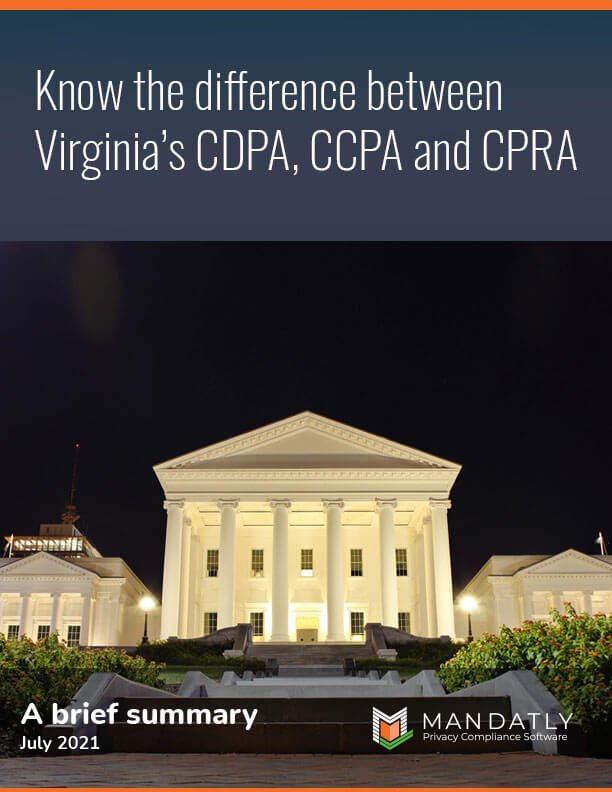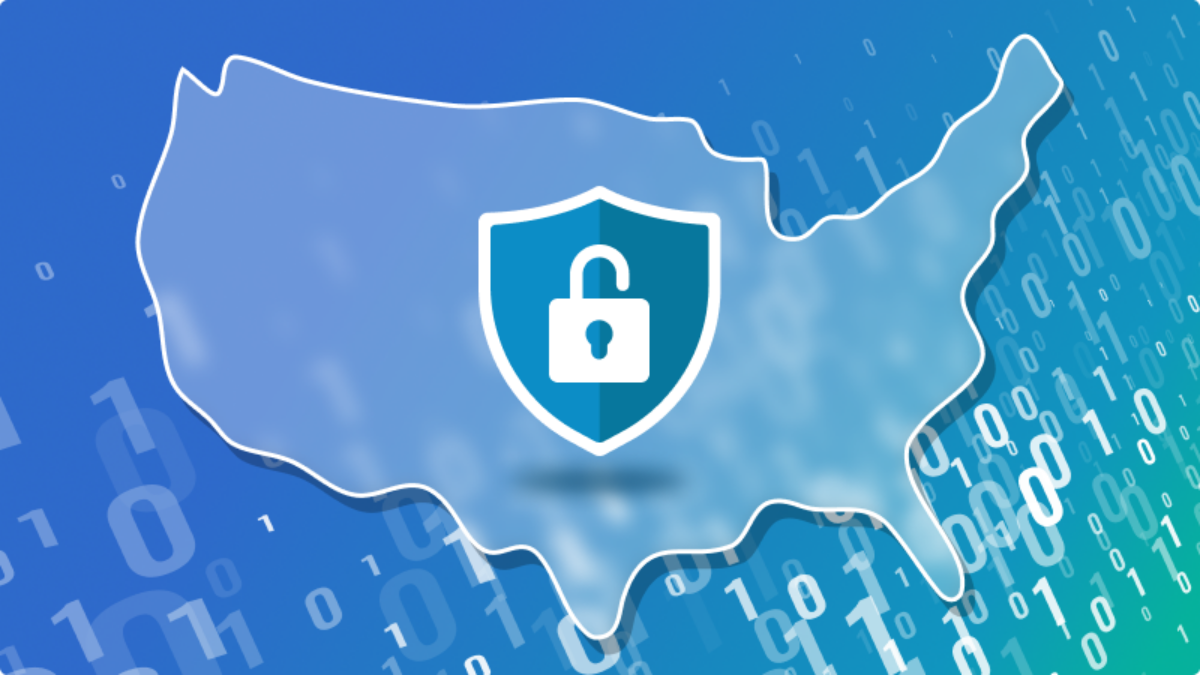Connecticut Data Privacy Act (CTDPA)

Key highlights of CTDPA (connecticut data privacy law):
Know the difference between Virginia’s CDPA, CCPA and CPRA?
Download this whitepaper to know more about the key differences between the provisions of Virginia’s new privacy law called CDPA, the California Consumer Privacy Act (CCPA) and the California Privacy Rights Act (CPRA). It provides an overview of each law’s requirements, highlighting their similarities and differences. Although there are some similarities in all the active privacy laws, the framework, and definitions of CDPA carries its unique requirements and guidance.

Consumer Rights under Connecticut Data Privacy Act (CTDPA)
- Right to Access
A consumer has the right to know whether a controller is processing the consumer’s personal data and access that data. - Right to Correct
It is the consumer’s right to correct any inaccuracies in the consumer’s personal data, considering the nature of that data and its purpose of processing. - Right to Deletion
A consumer has the right to ask for the deletion of their personal data that the consumer provided to the controller. - Right to Data Portability
A consumer has the right to obtain a copy of the consumer’s personal data, that the consumer previously provided to the controller, in a format that is portable, readily usable and allows the consumer to transmit the data to another controller without impediment, where the processing is carried out by automated means. - Right to Opt-Out
A consumer has the right to opt out of the processing of the consumer’s personal data for the purpose of targeted advertising, the sale of personal data or profiling in furtherance of solely automated decisions that produce legal or similarly significant effects concerning the consumer.
Obligations of Controllers
Under the Connecticut Data Privacy Act (CTDPA) compliance, Controllers must follow strict rules to protect people’s information and make sure they’re following the law.
- Data Minimization
Controllers must only collect the personal data that is adequate, relevant, and reasonably necessary considering the purposes for which their data is processed as disclosed to the consumer. - Purpose Specification
Controllers should not process personal data for purposes that are neither reasonably necessary to, nor compatible with, the disclosed purposes for which such personal data is processed, as disclosed to the consumer, unless the controller obtains the consumer’s consent. - Transparency
A controller shall provide consumers with reasonably accessible, clear, and meaningful privacy notice that includes:- The categories and purpose of personal data processed by the controller;
- How consumers may exercise their consumer rights, including how a consumer may appeal a controller’s decision about the consumer’s request;
- The categories of personal data that the controller shares with third parties, if any;
- The categories of third parties, if any, with which the controller shares personal data; and
- An active electronic mail address that the consumer may use to contact the controller.
- Security
The controller must establish, implement, maintain and update reasonable administrative, technical, and physical data security practices to protect the confidentiality, integrity and accessibility relevant to the volume and nature of the personal data at issue. - Opt-in Consent
Controllers should not process sensitive data concerning a consumer without obtaining the consumer’s consent, or, in the case of the processing of sensitive data concerning a known child, without processing such data in accordance with Children’s Online Privacy Protection Act.Additionally, controllers are required to “provide an effective mechanism” for consumers to revoke consent that is at least as easy as the mechanism used to provide it. - Non-Discrimination
A controller may not discriminate against a consumer for exercising a right by denying a good or service to the consumer or charging the consumer a different price. - Data protection assessments
Controllers are required to perform and document Data Protection Impact Assessments for each processing activity “that presents a heightened risk of harm” to consumers.
How Mandatly helps you achieve Connecticut's CTDPA compliance?
Mandatly’s CTDPA compliance solution goes above and beyond automation and includes comprehensive privacy risk management features that enable you to make effective business decisions and eliminate privacy risks.





